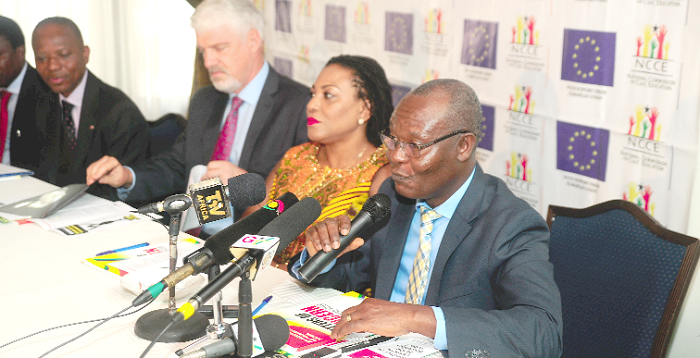
‘Resource NCCE to function effectively’
Participants in the launch of a research report by the National Commission for Civic Education (NCCE) on “Matters of concern to the Ghanaian Voter,” have called for the allocation of adequate resources to enable the NCCE to function effectively.
Advertisement
Chapter 19 of the 1992 Constitution and Act 452 of 1993 that established the Commission mandates it to educate the citizenry on its civic responsibilities towards the state.
However, the lack of adequate resources has been a major challenge to the commission in the effective discharge of its constitutional mandate.
Some of the participants stated that the impact of the commission had not been felt in their communities, hence the need for the body to extend its programmes to the citizenry to enable them to meet their civic responsibilities as enshrined in the constitution.
One major challenge to stakeholders in the electoral process which participants felt could be addressed with the help of the commission is the huge numbers of rejected ballots in the elections conducted so far since the country embarked on multiparty democracy in 1992.
The participants were of the view that since elections played a key role in multiparty democracy the world over, the NCCE could play a leading role in voter education to guide people to vote correctly and avoid the canker of spoilt ballots which had bedevilled past elections.
EC’s records on rejected ballots
According to the Electoral Commission (EC’s) records, the number of rejected ballots recorded in the first round of the 2008 presidential race was unprecedentedly higher.
As many as 205,438 ballots, which constituted 2.4 per cent of 8,671,272 total votes cast, were rejected in the 2008 elections.
Many political pundits have posited that the “Rejected Ballot Party” placed third in the 2008 presidential race and that if rejected ballots were a political party, it could boast a steady increase in popularity ahead of the smaller parties.
In the 2012 election, the number of rejected ballots stood at 251,720 (2.3 per cent).
Again, the number of rejected ballots in 2012 was higher than the total votes of all the other presidential candidates, excluding those of the NDC and the NPP.
With those figures in mind, Mr Samuel Asare Akuamoah, a Deputy Chairman (Operations) of the NCCE, said although the commission was doing its best to educate the people on their civic responsibilities, it lacks the resources to effectively reach out to them.
He said those factors were beyond the scope of the commission and it would only take collaborative efforts to deal with them.
The report indicated that education, health, employment and energy were the topmost issue that voters wanted addressed.
However, for the people of the Upper East Region, agriculture was their priority.
The respondents also highly rated the EC to offer a fair, transparent and credible election come December, 2016.